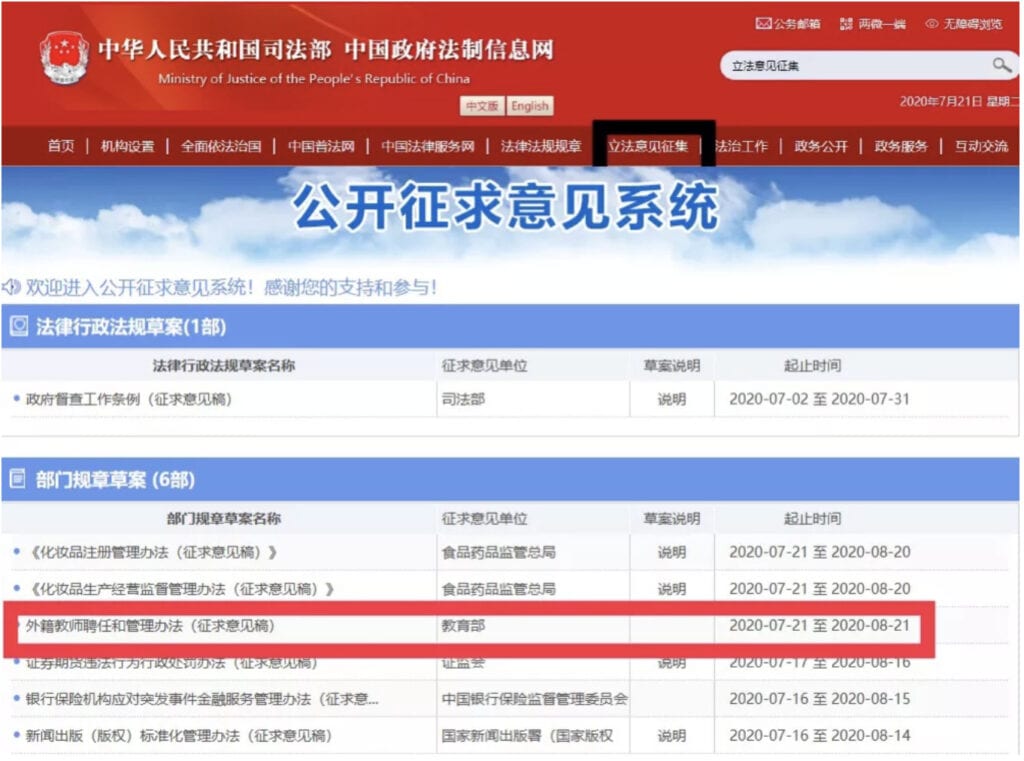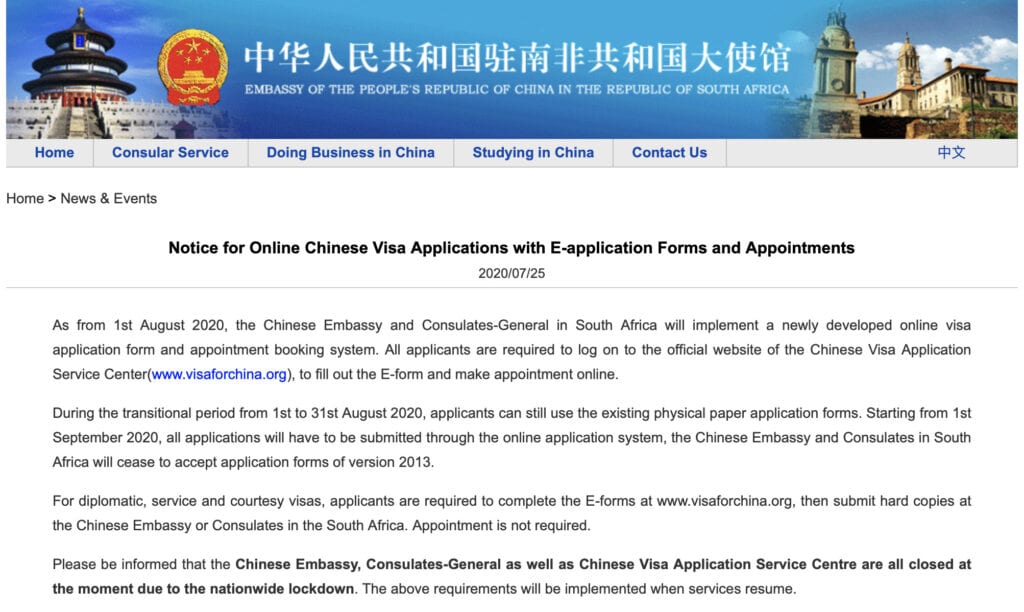
On July 21, 2020, in order to strengthen the management of foreign teachers, the Ministry of Education, together with the Ministry of Science and Technology, the Ministry of Public Security and the Ministry of Foreign Affairs, formulated the Measures for the Appointment and Management of Foreign Teachers (Draft for Comments) to solicit public opinions, and below is the major content.
Basic Requirements for Foreign Teachers
Foreign personnel should meet the following requirements before they can be employed as foreign teachers by various educational institutions at all levels.
- Bachelor degree or above;
- As a subject professional (including foreign language literature) teachers must have more than two years of teaching or working experience in related disciplines;
- As a teacher of foreign language training, he/she must have been trained in language teaching, and obtain the language training qualification, and generally be engaged in his/her mother tongue teaching;
- And for those who teach relevant courses in Chinese, their mandarin level should reach class 3B or above, or pass the HSK proficiency test to obtain the corresponding grade certificate.
Who Will Be Banned from Employment
Under any of the following circumstances, foreign personnel shall not be employed by any educational institution.
- Words and deeds that damage China’s national sovereignty, security, honor and social and public interests;
- Being investigated for criminal responsibility;
- Hindering the implementation of the educational policy;
- Drug addicts;
- Having committed acts of sexual assault or maltreatment of minors;
- Illegally engaging in religious education or missionary work;
- Engaged in cult activities;
- Sexual harassment of students or other serious violations of teachers’ professional ethics;
- Providing false certification information in the process of applying for teaching in China;
- Having three records of breach of trust.

Part-Time Job Allowed for Full-Time Teachers
During a period of employment, foreign teachers can only sign a contract with one educational institution. The contents of the contract shall include the work tasks, the working place, the responsibilities of the position, the term of appointment, rights and obligations of both parties, the assessment methods, the dispute settlement mechanism and liability for breach of contract.
It is worth noting that, with the agreement of the employing institution, foreign teachers can reasonably work part-time in other educational institutions. But the accumulated part-time teaching time shall not exceed the teaching time in the employing institution.
Filing and Sharing of Teachers’ Information
For educational institutions, a material copy or electronic material of the employed teachers shall be uploaded to the national comprehensive information service platform for foreign teachers, and the service platform shall generate the record number of foreign teachers, one number for each foreign teacher.
Note: The national comprehensive information service platform for foreign teachers only allows the registration of educational administrative departments and educational institutions.
For government departments, information sharing mechanisms for foreign teachers should be established, including lists of foreign teachers who have been granted work permits to work in China and those who are prohibited from employment.
Three Ways to Make Suggestions
Here are three ways to give advice about the draft, from July 21 to August 21, 2020.
- Log into the official website of Ministry of Justice of the People’s Republic of China(www.moj.gov.cn/www.chinalaw.gov.cn), and click the legislative opinions collection (立法意见征集) in the home page;

- Send an Email to : fzb@moe.edu.cn ;
- Send via mail to the policy and regulation judicial system office of the Ministry of Education. Address: No. 35, Damuchang Hutong, Xicheng District, Beijing (postcode: 100816).














